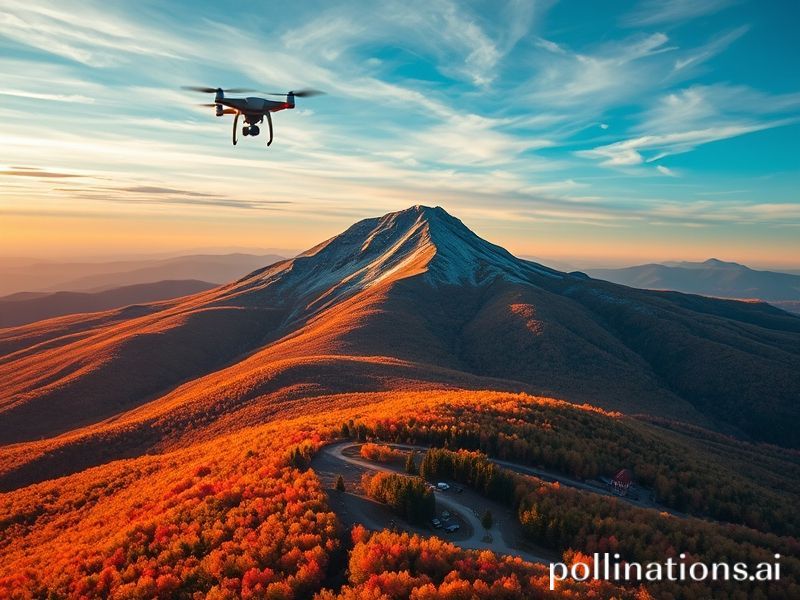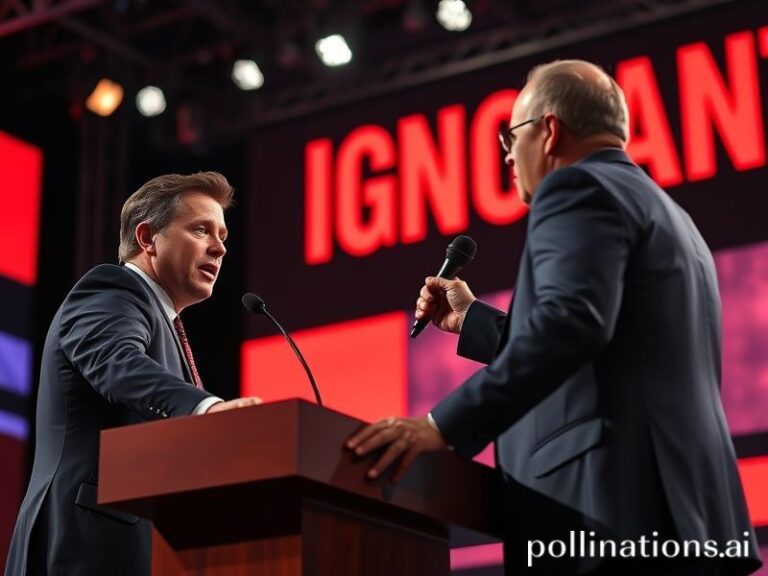How Tiny New Hampshire Hijacks Global Politics (and Ski Season) Every Four Years
The Granite State’s Global Shadow: Why a Tiny Corner of New England Still Makes the World Sweat
DATELINE: Somewhere over the Atlantic—Half a million souls live in New Hampshire, a territory so small that if it were a country it would rank 174th by population, wedged somewhere between Malta and the Maldives. Yet every four years the planet’s financial markets, diplomatic cables, and late-night satire writers treat this patchwork of ski slopes and tax-free liquor outlets like a geopolitical supernova. Why? Because Americans insist on holding their first presidential primary there, and the rest of us—like polite party guests pretending to enjoy the host’s experimental jazz—nod along and wait for the hors d’oeuvres.
To understand the phenomenon, imagine if Liechtenstein were granted veto power over the next Managing Director of the IMF. New Hampshire’s electorate is roughly 0.15 % of humanity, but it can catapult a senator, a South Bend mayor, or an anti-vaccine wellness guru to the brink of thermonuclear launch codes. Global investors watch the returns the way Kremlinologists once studied May Day parades: a three-point swing in Dixville Notch can shave $40 billion off defense-contractor market caps before Frankfurt opens. Somewhere in Beijing, a Politburo member is Googling “What is a town moderator?” while sipping pu-erh tea that costs less per ounce than Manchester condo rent.
The international significance does not stop at finance. Brussels bureaucrats, who have memorized every clause of the Northern Ireland Protocol yet still think Concord is a grape, suddenly become experts on “retail politics.” Tokyo newscasters practice pronouncing “Klobuchar” without swallowing a syllable. And in Lagos, a WhatsApp group of startup founders debates whether the Free State Project’s libertarian pilgrims will finally turn New Hampshire into a blockchain utopia—or just raise Airbnb prices during foliage season.
Climate change, that great equalizer, has also drafted the Granite State into global headlines. Its once-reliable winters now alternate between Polar Vortex cosplay and soggy 40-degree mud, forcing Swiss ski-resort executives to study Nashua snow reports the way 19th-century sailors studied albatross migrations. When New Hampshire ski slopes open late, Alpine villages lose Chinese tourists who opt instead for Harbin’s ice festival, where at least the cold is guaranteed and the politics are refreshingly authoritarian.
Meanwhile, the state’s demographics—aging, 90 % white, and armed to the orthodontically perfected teeth—are projected onto the world stage as a morality play about the decline of Western hegemony. German think-tankers write 200-page papers entitled “Post-Industrial Whiteness and Populist Resentment in Coös County,” never having endured a Berlin winter without decent heating. French philosophers hold panel discussions on “L’esprit du libertarianisme américain” while chain-smoking Gauloises and ignoring the fact that their own pension reforms just sparked a nationwide garbage strike.
Of course, New Hampshire’s outsized influence is not entirely organic. It is preserved by a cartel of journalists, campaign consultants, and pancake-house proprietors who understand that mystery sells. Keep the electorate small, the questions folksy (“What’s your favorite flavor of creemee?”), and the media circus will keep rolling like a Swiss fondue train powered by cable-news ad revenue. The rest of the world, addicted to American spectacle the way teenagers binge Korean dramas, tunes in for the pageantry and stays for the schadenfreude.
So, what does the 2024 edition portend for the planet? If history is any guide, a candidate who finishes fifth in New Hampshire will still insist on “a strong path forward” until Super Tuesday, burning through enough jet fuel to melt another fraction of Greenland. Markets will gyrate, pundits will hyperventilate, and somewhere in Reykjavik a bartender will invent a cocktail called the “Granite Hangover”—equal parts maple bourbon and existential dread.
In the end, New Hampshire is less a state than a global Rorschach test: each nation sees its own anxieties reflected in those snowy woods. For some, it is democracy at its most admirably granular; for others, proof that the American empire has downsized to a town-hall meeting. Either way, the world keeps watching—because if the next leader of the free world can be chosen by a place that still uses wooden ballot boxes, we might as well enjoy the show. Pass the popcorn; the planet’s heating bill is already in the mail.







